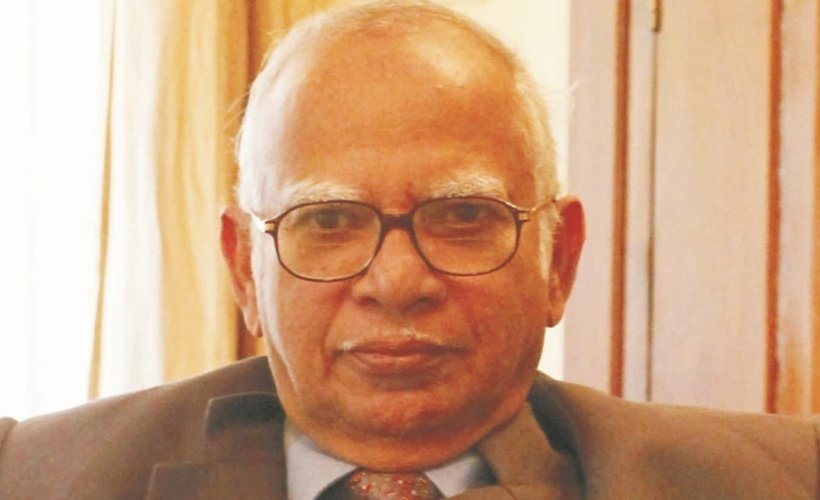
V.B. Prabhu Verlekar elaborates on the importance of Succession Planning with regards to Indian business families
A study shows that the average lifespan of an Indian family business is 24 years. Only about 30% of family businesses get passed on to the second generation, 12% of that is passed down successfully to the third generation, and only 3% to the fourth generation. The transition of management, ownership and control of the business to the next generation of leaders most often lies within the family. Indeed, some of the Indian success stories are attributed to business communities like Marwaris, Jains, Gujaratis, Chettiars, Reddys, GSBs (North Canara). The Goan picture, however, is dismal. Many prominent families who were in mining, manufacturing, real estate, retail and wholesale trade as well as agency dealers have either disintegrated or turned dysfunctional. Some of the reasons for such outcomes can be attributed to lack of training, internal culture and structure, incompetence and disinterest in family business, inability to deal with professionals as well as lack of objectivity of external view.
Family Disputes and Break-ups
Succession planning is sine qua non or absolutely necessity for family enterprises. Family disputes trigger a mixture of issues woven through generations into major divides amongst close relatives. Most often, one issue leads to another and sometimes this leads to collapse of the entire business resulting in bankruptcy. A classic example is the closure of a prominently located heritage hotel in Panaji with an iconic brand known for old world warm hospitality, excellent food, business meets and family gatherings with a loyal customer base. The family feud indicates gross absence of succession planning in conduct of the prosperous enterprise. For the same reason there has been a public spat between siblings and parents of a reputed family in Margao. Aristocratic family members of one of Goa’s tallest socio-political leaders are still fighting after his death over 30 years ago, for distribution of properties, ruining their prosperous business.
Reliance Model: A progressive step
There is a lot to learn from the principles and practices followed by Reliance Industries Group which can be a guide even for small businesses. They have learnt from the mistake of not executing a Will by the founder Dhirubhai Ambani resulting in a dispute between the brothers Mukesh and Anil, despite great wealth which could last for generations. Their mother Kokilaban had to intervene with veto power. Taking lessons from this, Mukesh Ambani, without differentiating between sons and daughter, groomed his two sons Akash and Anant and his daughter Isha to take over the business by giving them appropriate and good education in well known American Universities. Thereafter, he has involved them, over six to seven years, in business operations. They have started from lowest rung with non-executive director positions and subsequently risen to independent decision making processes and business deals without his involvement. Now, Akash is in charge of Jio Network Communication, Anant is head of Renewable Energy, and Isha is heading Reliance Retail Ventures. Each of these businesses is of almost equal value. Each of them commands respect from shareholders and other stakeholders because of their proven competencies. Mukesh Ambani now plays a passive role as Chairman of the Group to support them in case of need but very active otherwise to achieve his vision.
Execution of Will
If the family does not have business interests, the estate can be passed after death by executing a Will and allocating assets among legal heirs, family members and others as per the wishes of the Testator. Here one should be careful to execute the Will as per personal law under which one is governed viz. Indian Succession Act, Hindu Succession Act, Mohammedan Law, Portuguese Civil Code. However, it is not advisable to give the entire business interest or estate to the children however loving and caring they may be if one does not wish to have the experience of aviator Vijayapat Singhania, founder of Raymond Textile Group. Nor should one declare retirement one fine day and hand over the business to family members without understanding the consequences of such actions. This can be a disaster for the family.
Private Family Trusts
Nowadays many high net worth families and wealthy individuals are considering the option of creating business/family trusts for continuity of business and to reduce disputes in case of challenges to Wills. These trusts can be structured to meet specific needs of the family and offer greater flexibility. Through a trust, benefits can be passed on to family members at appropriate times. Scenarios such as when children are young or until they are groomed for running the business, to support differently abled children, to carry on the vision of the founders of the business to support social welfare like education, research, health are just some of the examples to create a trust. TATA Trust is a classic example.
Settlors can themselves be beneficiaries too to take care of their old age through the trust fund via trustees.There is also a unique benefit of a trust. Once the trust is created, settlors of the trust have no control over the assets transferred and hence they are safeguarded from any action taken by creditors in case of an insolvency crisis. This protects the beneficiary’s future.
A variety of factors intervene after business enterprises take roots which either flourish or perish. Time never stands still and along with it, world over, science and technology imports a variety of developments that need dexterous handling to suit tastes, competence and organisational abilities of successors leading the families. There is a resolute need to address succession planning in most of the families, so that wealth created is nurtured and placed in capable hands, earlier you do it, the better.
The Columnist is a senior Chartered Accountant and has authored many books on accounting and taxation. Email: verlekar@bsnl.in





